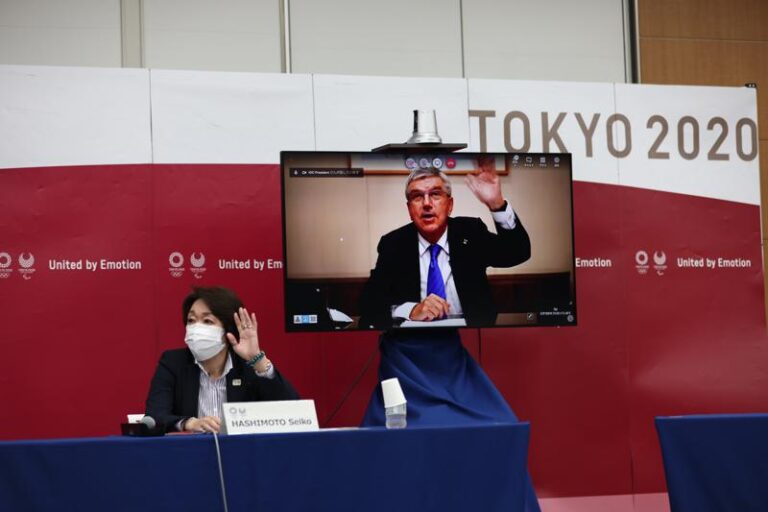Warm Up
—- **FOR NEW STUDENTS**————————————————
- What industry do you work in and what is your role?
- What are your responsibilities in your role/position?
- Can you describe to me the function of your workplace/company?
- How many departments, how many offices. National or International?
- What is the Minimum requirements for employment i.e Education or Experience?
- How many opportunities are there to ‘move up the ladder’?
- What is the process for changing job roles i.e Interview? Test?
——————————————————————————————
General discussion about your workweek:
- Current projects? Deadlines? Opportunities?
- Anything of interest happening?
——————————————————————————————-
Listening
Before the video: Teachers will read the following questions aloud, please prepare for listening!
After the video: Did you get it? If not, please tell your teacher specifically which part you didn’t understand. Let’s review the video again 🙂
- One survey found Japanese workers left how many days off unused?
- What changes were made at Dentsu after 2015?
- Premium Fridays were designed to promote what?
Key Words and Phrases
-
Working long hours is a way of life in Japan. So much so, that some occasionally die from it. Karoshi is a term that means death by overwork. So why are people working so hard? And can it be fixed?
- Japan has some of the longest working hours in the world. Nearly a quarter of Japanese companies have their employees work more than 80 hours of overtime per month. Those extra hours are often unpaid. Today, Japan’s corporate culture is driven by the so-called salaryman. The salaryman is defined by his loyalty to his company and expected to spend his entire career working for the same firm. Not only does he work long hours in the office, but it’s also assumed he’ll participate in after-work activities too, like drinking with colleagues. And they’re not taking enough time off.
- In 2017, one survey found that despite being entitled to 20 days off per year, Japanese workers left 10 of those days unused – topping every other country in the survey. You don’t have to be in the confines of corporate walls to feel the impact of its work culture. It’s 3 am Thursday morning right now in Tokyo, I’m in the area of Ginza. Every few minutes I see a man wearing a suit, holding a briefcase.
- [responsivevoice voice="US English Female" buttontext=""]The nation’s work ethic dates back to what’s referred to as Japan’s economic miracle, which was its dramatic economic growth beginning in the 1950s, which propelled it to become the world’s second-largest economy. Inside Japan’s corporations, the culture emphasizes the success of a company as a whole to be more important than any single individual, which might explain why one study found that 63% of Japanese felt guilty for taking paid leave.
- But perhaps more concerning is this: Long work hours don’t necessarily mean high productivity. In fact, Japan has the lowest productivity amongst the G7 nations. Earlier I mentioned the term karoshi – it means death by overwork. It’s legally recognized by the government and usually is marked by a heart attack, stroke or suicide due to stress. There are hundreds of cases of karoshi reported annually, although some argue these cases are underreported and that the real number could exceed that by up to 10 times.
- An employee of the advertising firm Dentsu jumped to her death in 2015. The cause was said to have been depression caused by overwork. The case generated widespread attention and renewed calls to change the long working hours and illegal unpaid overtime highly common in Japan. The firm was fined for violating labor standards because she was reportedly forced to work more than 100 hours of overtime per month The company’s CEO even resigned over the controversy. After the death, Dentsu made some changes within the company.
- One of them, The lights in the office now turn off at 10 pm every night in an effort to force employees to leave. Both the government and companies are now actively trying to reduce the number of working hours here. And there are some early signs of hope. Japan’s government has considered several initiatives to curb the number of hours spent at the office, including making it mandatory to take at least five vacation days a year and requiring a “rest” period between the end of one day and the start of another.
- In 2016, a new holiday “Mountain Day” was started, bringing Japan’s number of annual public holidays to 16. And in 2017, the government launched an initiative called Premium Fridays, in which it encouraged companies to allow their employees to leave at 3 pm on the last Friday of the month, promoting consumer spending and less time in the office. But one study found that less than 4% of employees in Japan actually left early on the first Premium Friday. Which is why despite these initiatives, a cultural challenge still looms. Since Japan’s culture emphasizes the group over the individual, well, no one wants to be the first one to leave the office. And there’s another reason that there’s pressure on people to work hard. Japan’s economy is in danger. And in order to maintain its massive size, Japan needs to put in the hours.
(After 4:01)————————————————————————————————————————————————————————————————————————————————————————————————-
- Japan is dealing with a labor crisis. Its population is aging fast and its birth rate is in decline. That means its total population is going down And in the next 50 years, it’s projected to shrink by nearly a third. The population is expected to go from 127 million in 2015, to just 88 million by 2065. There’s two likely ways the nation can compensate for the labor shortage – immigrants or robots.
- Japan has always been less inclined to accept immigrants. In fact, its percentage of foreign workers is tiny compared to other nations of large economies. So without more immigrants, it’s looking to robotics to fill in the gap. Its robotics industry has spanned from hospitality to manufacturing, and now even reaching farms by creating robots that milk cows. But whether technology could open the door for a better work-life balance for Japan’s workforce still remains to be seen.
Discussion
- Think of this as a way to educate me, a foreigner on this topic.
- How much of what is detailed in the video do you believe to be true? Discuss
- i.e (1)“The salaryman is defined by his loyalty to his company and expected to spend his entire career working for the same firm” .. ” its (SIC) assumed he’ll participate in after-work activities too, like drinking with colleagues”. (2)“the culture emphasizes the success of a company as a whole to be more important than any single individual”. (3)Karoshi (SIC) cases are underreported and that the real number could exceed that by up to 10 times.
- How many of your given days off do you take each year? Has the number changed in your working life? Why? Discuss
- Have you ever or do you feel guilty when you take a day off, Why?
- Have you ever experienced illness due to overwork/Fatigue, what remedies are available to combat such things?
- What changes have you seen in Japanese work culture over the years? In general and in specificity to your Workplace?
- what is your opinion of these changes? What suggestions would you make? Discuss
00:40 he’ll participate in after-work activities too, like drinking with colleagues.
01:23 Inside Japan’s corporations, the culture emphasizes the success of
01:38 But perhaps more concerning is this:
01:40 Long work hours don’t necessarily mean high productivity.
01:51 It’s legally recognized by the government and usually is marked
02:07 An employee of the advertising firm Dentsu jumped to her death in 2015.
02:37 One of them?
02:52 Japan’s government has considered several initiatives to curb the number of hours spent
03:13 And in 2017, the government launched an initiative called Premium Fridays,
03:37 Since Japan’s culture emphasizes the group over the individual, well,
03:58 a title that it had previously held for 42 years.
04:01 Japan is dealing with a labor crisis.
04:03 Its population is aging fast and its birth rate is in decline. That means its total population is going down.
04:14 The population is expected to go from 127 million in 2015, to just 88 million by 2065.
04:40 Its robotics industry has spanned from hospitality to manufacturing,
- “So much so” = indicate that your previous statement is true to a very great extent, and therefore it has the result mentioned. use in a sentence
- Confines / Confined = boundaries of a place, especially talking about restricting freedom of movement. “within the confines” =to keep (someone or something) within limits
- Dramatic = an event or circumstance that is sudden and striking.Drastic, Substantial, etc
- Propelled = to push something forward “fear propelled her out of being still”
- necessarily / necessary = as a necessary result. Automatically. use in a sentence
- Marked by = “shown by, exhibited in” having a special characteristic. He speaks with a marked accent. There was a marked change in her attitude. There’s been a marked improvement in the weather.
- despite (in spite of) = without being affected. regardless of.
- looms = a person or event which appears threatening “crisis looming” / menacing
(After 4:01)————
- “Hold the title” = officially owning something, being recognized as such
- Compensate = give (someone) something, typically money, in recognition of loss, suffering, or injury incurred. this compensation is called recompense
- Less inclined / More inclined = Inclined means that you’re likely to do something, you’re leaning toward doing it, or you do it habitually use in a sentence
- “Fill the gap” = robots fill the gap in the labour market
- Habitually = done constantly/ regularly or as a habit.
- Remains to be seen = used for saying that you cannot know yet if something will happen or be possible. lacking proof
- Open the door = pave the way
ANSWERS



